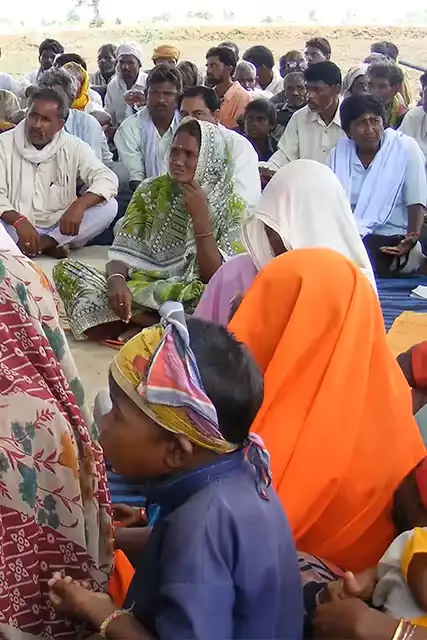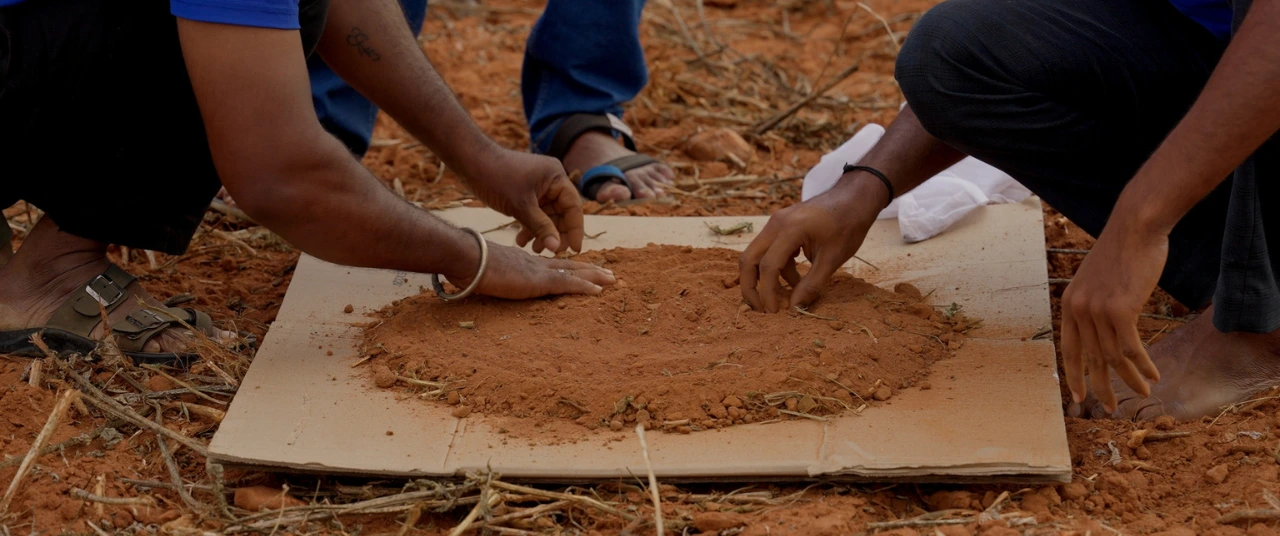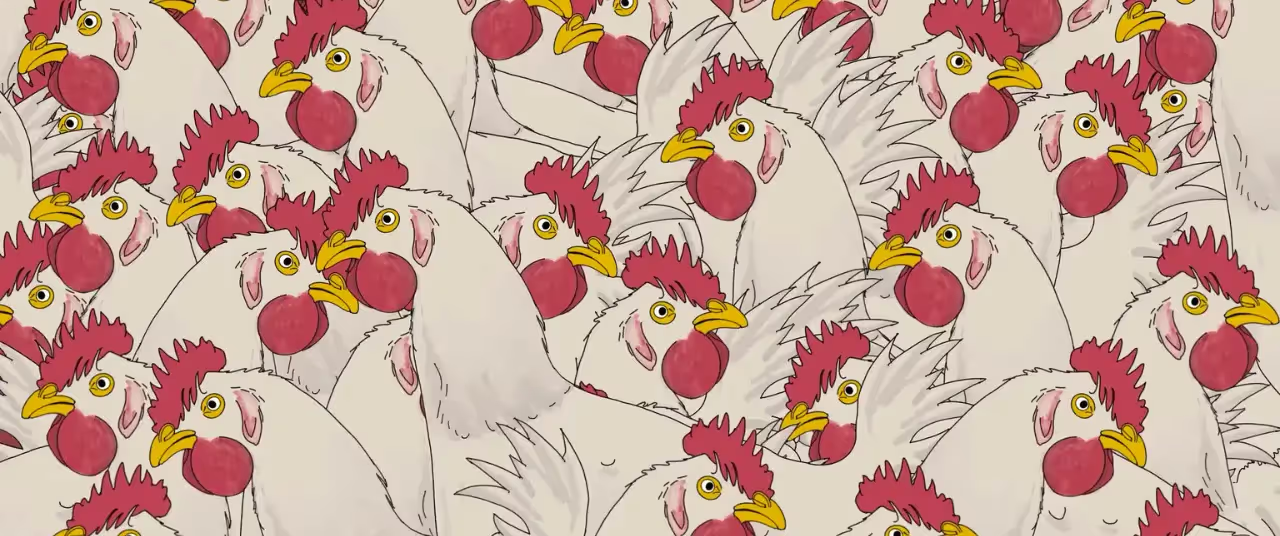Grassroots organisation freed bonded workers in Chitrakut






Chitrakut district in Uttar Pradesh, renowned for its pilgrimage sites, has long been marked by severe exploitation in many villages. Over the past 40 years, significant progress has been made through a consistent initiative to distribute farmland to the poorest landless households, particularly from Kol tribal and Dalit communities.
Gaya Prasad Gopal, 85, who founded the voluntary organisation Akhil Bharatiya Samaj Sewa Sansthan (ABSSS) and led this initiative, recalls, “Most of the land was owned or encroached by large landlords. Landless Kols and Dalits laboured for minimal wages, often just a quarter kilogram of coarse grain. Many were bonded workers. Hunger was widespread, compounded by a shortage of drinking water.”
When ABSSS sought to free bonded workers, the administration initially denied their existence. Persistent advocacy led the state government to send experts from Lucknow, who identified 2,900 bonded workers in the Manikpur and Mau blocks, where ABSSS was active.
The administration then took action, though it was delayed, to release and help the bonded workers. ABSSS continued working diligently to make sure the government support reached the released workers.
Recovering land
Meanwhile, ABSSS found out many landless workers had been allocated 2 to 4 acres of land years earlier, but landlords had taken over this land.
The activists worked hard to gather information on these land deals and encroachments. They then launched a campaign to recover the land from the landlords so that the poorest families could use it for farming. The activists, led by Gopal Bhai, faced not only powerful landlords but also dangerous dacoit gangs that threatened and harassed them.
By this time, the Kols and Dalits had become confident in the ABSSS’s commitment and quickly came together to safeguard their new opportunities. The ABSSS had also set up several informal schools, and as the students grew up, they and their teachers joined in the effort to protect their rights.
Many families felt a sense of pride as they began receiving official documents confirming their land rights. Despite issues with encroachers, most people who received these documents (Pattas) were eventually able to farm their land.
However, challenges persisted. Much of the land was difficult to cultivate, and a lack of irrigation was a significant problem for these new farmers.
Tackling water challenges
ABSSS addressed this by initiating water conservation and small irrigation projects, which later evolved into larger watershed programmes. As ABSSS built a reputation for effective, low-budget work, prominent organisations like NABARD, Tata Trust, Oxfam, and Action Aid supported their efforts. Bhagwat Prasad, then the young director of ABSSS, played a crucial role in enhancing their work's quality while keeping costs low. This earned ABSSS the prestigious FICCI award for their water conservation and watershed development work, particularly in Mangava panchayat.

The sudden death of Prasad from a heart attack was a major setback. Yet, his legacy of check dams, ponds, and soil conservation projects enabled many Kol and Dalit farmers to cultivate their land effectively. For the first time, they could harvest crops from their own land and understand what food security means.
Land distribution 2.0
This success also raised the hopes of other landless individuals who had not yet received land. In response, a new campaign was launched, resulting in a second wave of land distribution that helped many more landless families obtain land. The work continued with renewed vigor, including creating layered vegetable gardens and digging water conservation pits or dohas.

Because of these efforts, many Kol and Dalit families in villages like Mangava, Harijanpur, Itwan-Paatin, and Tikariya (Manikpur block) have successfully farmed their newly allocated land, thanks to minor irrigation and soil and water conservation projects.
Gopal Bhai says, “As a result of our direct efforts and our influence on some government initiatives, about 2,500 landless families were able to get land.”
He also mentions that while some farmers started using chemical fertilisers due to the availability of irrigation, ABSSS focused on promoting natural farming methods.
Continuing success
Food security improved with the planting of various native trees, especially fruit trees. ABSSS estimates that about 60,000 of these trees have survived.
The success, achieved in a challenging environment once controlled by large landowners and criminal gangs, was driven by community involvement. Participation in protest meetings, marches, and sit-ins was crucial. Women played a key role in these efforts, with activists like Booti, Sanjo, Kesar, and Urmila stepping up. Some of these women even ran for and won panchayat elections. This increased the community’s confidence in their ability to protect their land and rights.
Matadayal from Harijanpur village recalls the hunger his Dalit family endured in his childhood. The community's hope was rekindled first with land allotments and then with the creation of an irrigation pond. Today, most families successfully farm their land and enjoy a decent level of food security.

As Matadayal grew up, he became close to Gopal Bhai and eventually emerged as a well-known activist. Although he learned to read and write later in life, his involvement in struggles helped him develop skills in writing and performing struggle songs. Now, he is sought after for his inspirational songs, many of which he has composed himself. He continues to work to help landless families secure and protect their land rights.
Cautionary note
The experiences from these villages show the great potential of land reforms focused on providing land to the landless for improving sustainable livelihoods and food security. During multiple visits to these villages, I have seen the progress in food security. However, this success is overshadowed by a troubling trend. With some extra cash available and an increase in places selling liquor, tobacco (especially smokeless tobacco or gutkha), and junk food, health and nutrition are being negatively affected. As Gopal Bhai points out, “Nutrition and health improvements could have been much greater if it weren’t for this growing problem. We need to address this issue more seriously.”
Explore other topics
References




.avif)




.png)

